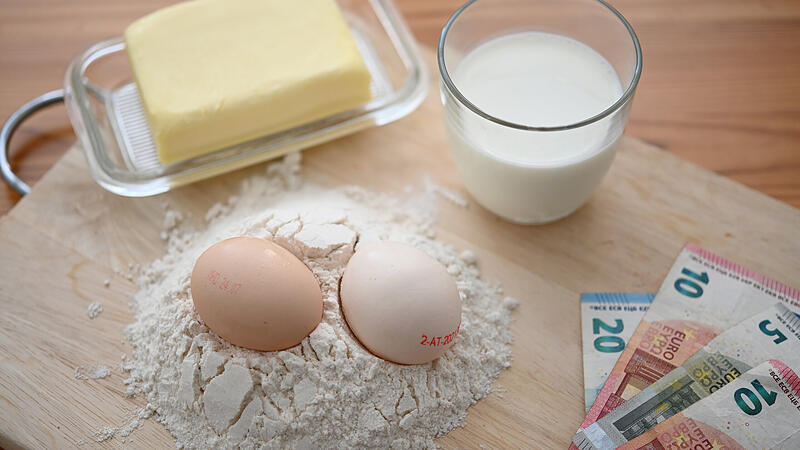Image: BARBARA GINDL (APA)
In April, inflation was still 9.7 percent. From September to February it was in double digits. The main reason for falling inflation is currently cheap fossil fuels. “Price inflation is also weakening for food,” says Statistics Austria boss Tobias Thomas.
At 8.8 percent in May, Austria’s inflation rate is still higher than in other countries in the euro zone. Germany reported inflation of 6.1 percent for May. Austria has already stood out in a comparison of the eurozone in recent months with higher inflation. This was recently a good 2 percentage points above the average for the common currency area and is causing economists increasing concern.
Economics Minister Martin Kocher (ÖVP) spoke today of a “severe decline” in the rate of inflation, which is mainly due to falling energy prices. “We see a downward trend,” said the minister on the sidelines of a press conference.
Finance Minister Magnus Brunner (ÖVP) called the decline “encouraging”, but the value was still too high. “Therefore, we have to gradually reduce demand-raising measures,” explained Brunner. What this means is that the government’s money is no longer so loose after the high one-off payments to all households last year. “We must now make an even greater contribution to lowering inflation by gradually reducing our expansive spending policy,” said Brunner.
The economically liberal and industry-oriented think tank Agenda Austria has long accused the federal government of keeping private consumption and business demand, and thus prices, high through state aid programs. The policy would inflate the prices, as the interest group explained on Thursday.
The SPÖ pensioners took the continued high inflation as an opportunity to demand an early pension increase of 5 percent in July. The purses of senior citizens are getting smaller every month, said Peter Kostelka, President of the Pensioners’ Association (PVÖ).
The flash estimates by Statistics Austria are based on the price data available at the time of publication. Usually around 80 to 90 percent of the prices collected for the consumer price index are already available. The final value for May 2023 will be published on June 16th. According to a flash estimate, the EU-wide harmonized HICP in Austria was 8.7 percent in May.
more from economy




